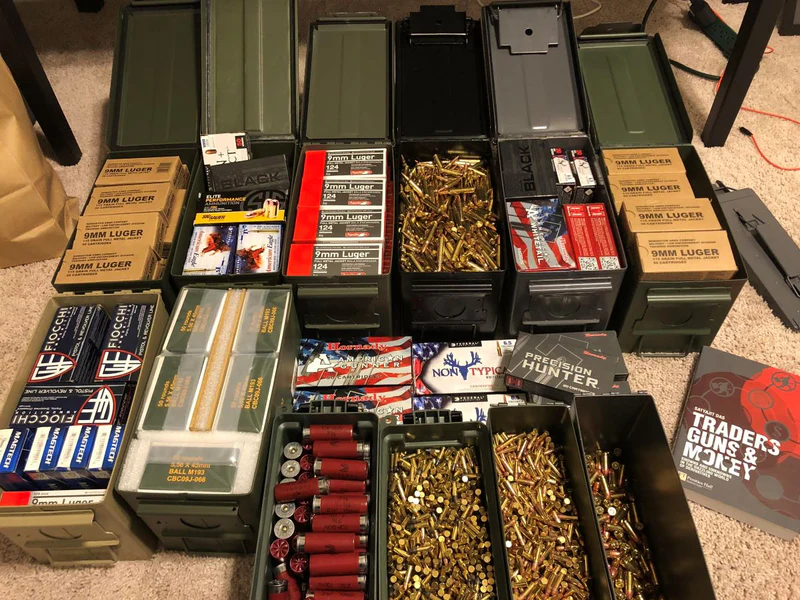Any firearm owner knows the importance of maintaining a supply of ammunition. After all, without ammunition, your firearm is nothing more than an expensive paperweight. Recent years have shown that ammo supplies can quickly dry up in times of social unrest, political uncertainty, or supply chain problems, and keeping a supply of ammo stored safely in your home can help alleviate those shortages and keep you happily hunting, shooting, and recreating with your firearms and family while others have to go without, or pay outrageous prices for high-demand ammunition.
In this article, we’re going to go over the reasons you should take safe ammo storage seriously and talk about some key factors to consider when developing your ammo storage strategy.
Reasons you should store your ammunition safely
From the outset, there are several good reasons for being mindful to store your ammunition safely. The main two reasons are to protect the ammo itself from damage and deterioration and to protect others. Let’s go into a bit more detail.
Protect your expensive ammunition from damage and deterioration
Proper storage in a cool, dry place is essential for most valuables, but especially ammunition. The price of ammo has gotten so high that some people have actually started buying extra in hopes of using it as a form of currency, potentially trading it for goods or services when ammo is in short supply. However, any ammo is only as good as it’s been stored. If your stockpile is corroded or damaged by heat, it’s no good to you or anyone else.
Keep ammunition out of the hands of children, thieves, and unauthorized people
Another primary reason for proper ammunition storage is to keep it out of the hands of children, other unauthorized people, and thieves. In some places, you could be held partially or fully liable if you haven’t taken reasonable precautions when storing firearms and ammunition, and they fall into the wrong hands. A good ammo storage strategy takes each of these factors into account.
Humidity in the air, and especially direct liquid water exposure, can have devastating effects on ammunition. Quality ammo can be immersed in water without damage, as long as it’s quickly dried off afterward and returned to a dry, cool location. But ammunition that’s improperly stored in humid environments, or that has been subjected to flooding, a leaking roof, or another source of water contamination over any significant length of time will often be rendered worthless.
Note that the cardboard and/or foam packaging that many types of ammunition come packed in can also absorb water from the air, which can then react with the metals in the ammo to cause destructive corrosion. So, be sure to keep your ammo in a humidity-controlled, air-tight container, particularly if your home is not humidity controlled, or your local weather conditions are often humid.
High temperatures and heat cycling
Along with humidity, heat is the factor that will kill ammo the quickest. If you store your ammunition in the trunk of your car, for example, and it often gets hot where you live, the heat can damage the gunpowder and priming compounds inside the ammo and create the potential for dangerous overpressure when fired or render the gunpowder unreliable or inert.

